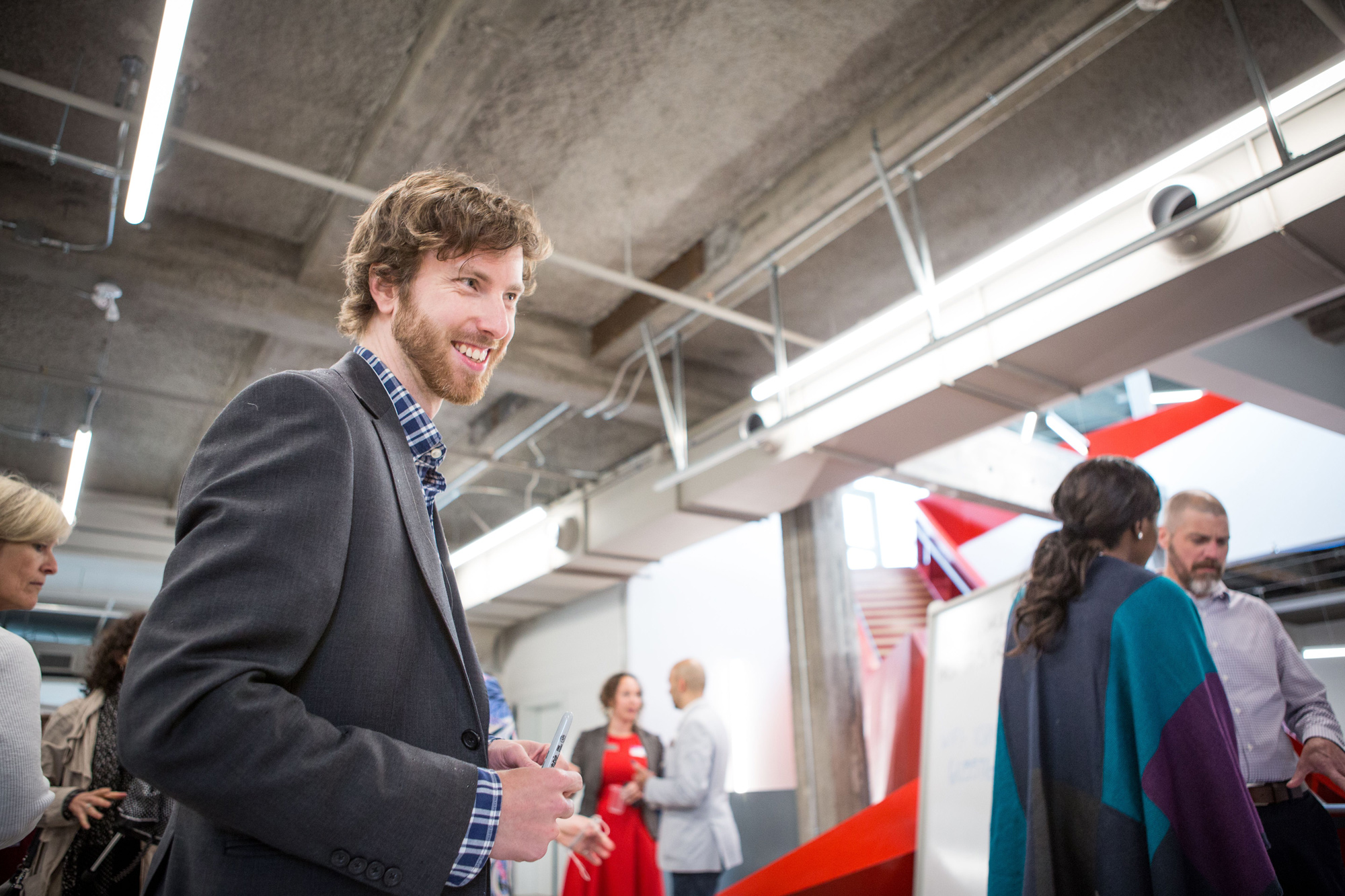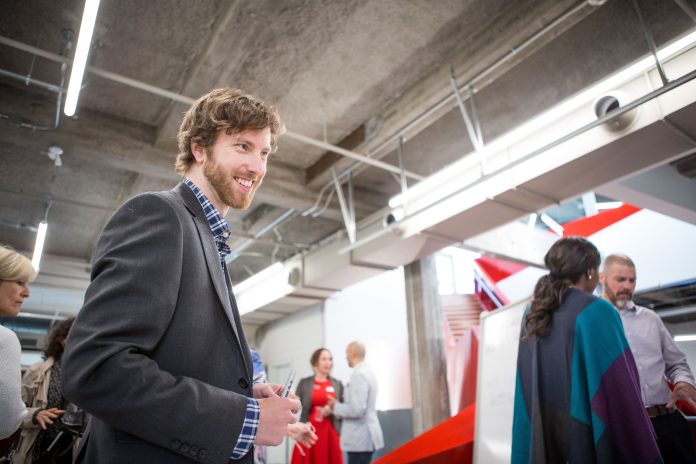By Aaron Thornell –
On a floor above Suzy Q Donuts, the staff of the Ottawa Renewable Energy Co-operative (OREC) are working towards a green energy revolution in Ottawa.
Driven largely by General Manager Janice Ashworth, Communications Manager David Mazur-Goulet and an illustrious board of directors, OREC is constantly striving to merge an environmentally conscious approach with community ownership and local investment. The co-operative was founded in 2010, on the heels of the Ontario government’s Green Energy Act launch. With that act’s marquee feed-in tariff program soon coming to a close, the co-operative is preparing for changes that will allow its members to continue to make low-risk investments in solar projects in their own community. Net-metering – which allows for the generation and self-consumption of electricity on a given property – is one of the directions that OREC is moving towards.
“OREC is now looking at net-metered solar power projects, where the co-operative would own, install, and maintain the system, with locked in prices for the property owner or institution,” says David. “With predicted price increases of electricity from the grid over the next three decades, there will be significant savings available for consumers with net-metered systems on their roofs or properties.”
The co-operative is currently accepting applications from businesses, institutions, and other properties who might be interested in having such a system installed on their property. The opportunity for partnership is open for all in Kitchissippi ward whose properties meet the necessary requirements.
Another new endeavour that OREC is setting its sights on is the rapidly growing market of energy efficiency. The co-operative, in partnership with the Canadian Green Building Council and EnviroCentre, recently received a grant from the City of Ottawa as part of its Energy Evolution Catalyst Projects Program, to conduct five energy audits for housing co-operative and non-profit housing structures.
“We saw there was a gap in the industry,” says David. “These [social housing] groups often don’t have the funds to conduct extensive energy audits. But with the right information, they can act appropriately to reduce energy bills for both their tenants or their organization.”

In OREC’s role as a community actor, however, the co-operative is looking towards long-lasting, mutually beneficial partnerships. David hopes that once the audits have been completed, these co-operatives and non-profit housing groups will be open to having OREC finance the recommended retrofits.
Playing this positive role in the community is one of OREC’s seven core, guiding tenets. As a co-operative, OREC adheres to seven principles of governance which include democratic member control, autonomy and independence, and the economic participation of its members.
For OREC, the aspect of economic participation plays a particularly central role. Since 2010, the co-operative has funded 17 solar energy projects across Ottawa and the Eastern Ontario region through member investment. These solar energy systems are all connected to the Ottawa Hydro or Hydro One grid, and through contracts with the Independent Electricity System Operator, OREC sells the energy generated by each system, generating a return on investment for its members. To date, OREC’s portfolio is valued at $7 million, and will supply 1.7 megawatt of clean electricity by the end of this year.
OREC welcomes new members, volunteers, and partnerships. Information regarding membership and upcoming events can be found at orec.ca. Among the upcoming events is a tour of one of the co-op’s most recent projects in Prescott-Russell on September 23. OREC will also be participating in the Ottawa Green Energy Doors Open on September 30 and October 1.
This article is part of a series about environmental initiatives in Kitchissippi ward. We welcome your ideas and feedback! Please contact us using this form. Read other articles in this series right here.
